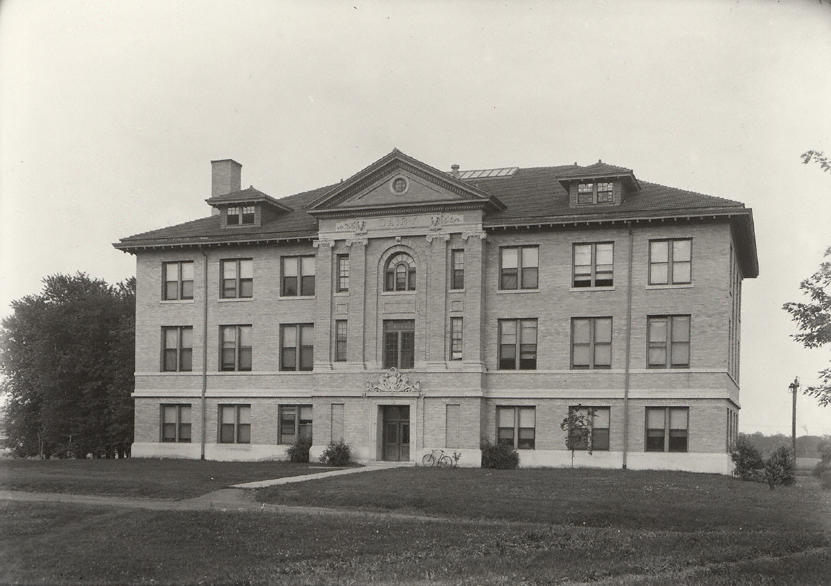
The Agricultural and Rural Policy Studies program has a long history at Iowa State University. The program’s roots stretch back 110 years ago, when the rural sociology program was first established at ISU. Rural sociology is an applied and problem-oriented field within the discipline of sociology, sharing common theories and methods, yet having a distinct provenance. Rural sociology (and agricultural economics) developed in response to problems with farm business and rural living that were identified by President Theodore Roosevelt’s Country Life Commission in 1908. The three national priorities identified by the Commission were establishment of agricultural extension programs, scientific surveys of rural life, and a national agency devoted to rural progress. Over 110 years later, ISU’s Agricultural and Rural Studies program is still engaged in extension work and social surveys of farmers and rural residents in Iowa.
1913 – First rural sociologist, Dr. George von Tungeln, hired at ISU.
1913 – First rural sociology course taught.
1915 – Rural sociology research program established in the Iowa Agricultural Experiment Station.
1919 – Bachelor of Science degree in Rural Sociology authorized by the College of Agriculture.
1920 – Master of Science degree in Rural Sociology authorized.
1922 – Rural sociology extension program established.
1940 – Ph.D. degree in rural sociology authorized.
1969 – Bachelor of Science degree renamed to Public Service and Administration in Agriculture (PSA).
1982 – Iowa Farm and Rural Life Poll (IFRLP) began.
1994 – Iowa Small Towns Poll (Sigma Study) began.
2015 – Bachelor of Science degree renamed to Agriculture and Society (AG SO).
2022 – Bachelor of Science degree renamed to Agricultural and Rural Policy Studies (AGRPS).
